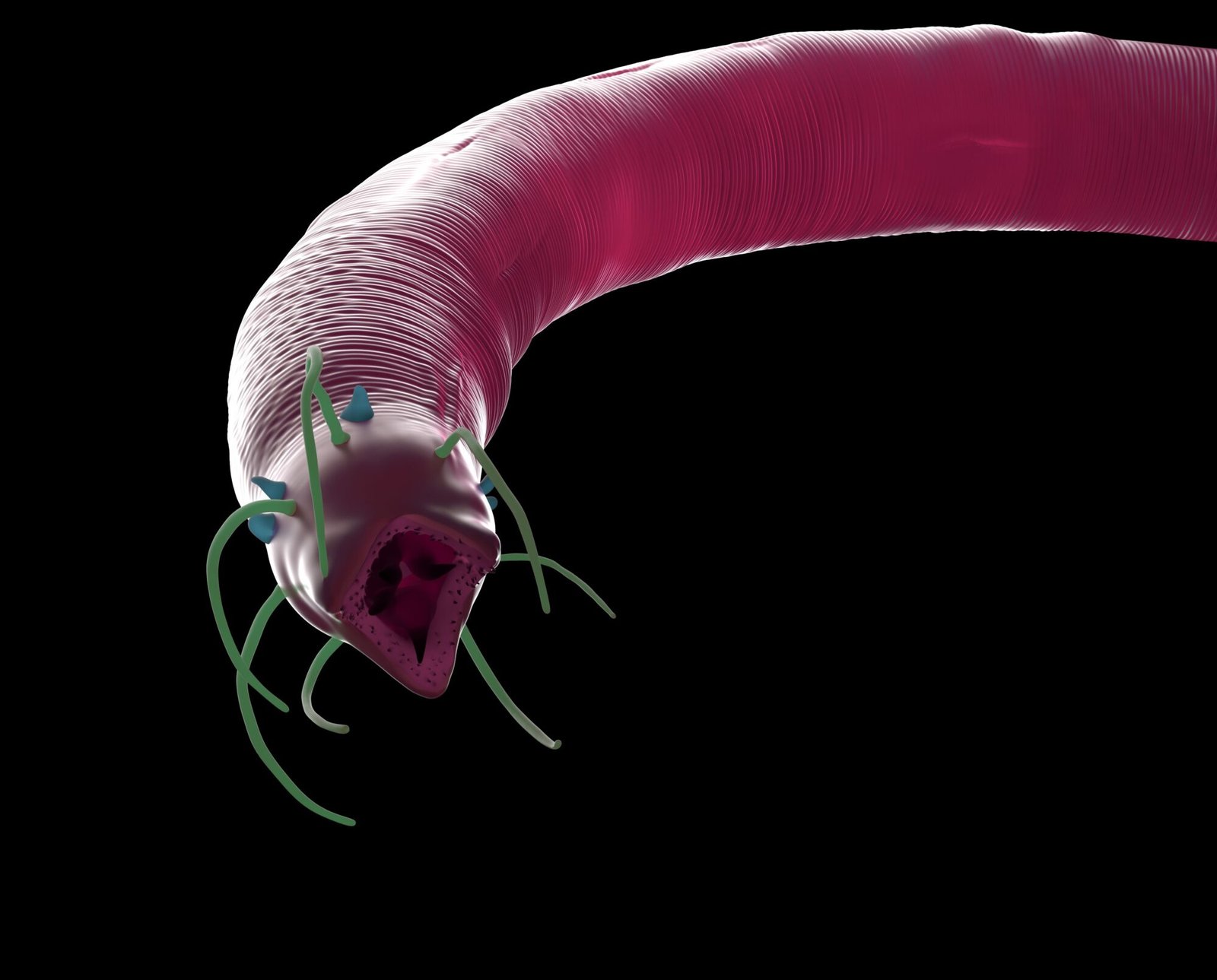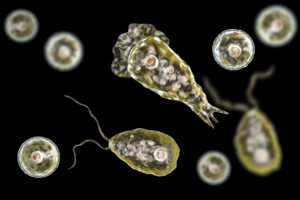Parasitic and fungal infections in the gut are more common than we may think. These microorganisms enter the internal environment when the defences are weak, and they may grow and spread out of control if left untreated.
The microbes find comfort in the homely environment that your gut provides for them, with a constant sustainable food source, moisture and warmth. They will grow and multiply inside your body, feeding off you and depleting your body of energy, nutrients and vital life force.
The gut is our first and foremost defence against chronic illness and disease, as it is the foundation of our immune system. Compromised gut health leaves the body wide open and exposed to foreign pathogens accessing entry to the organ systems in our body, including the brain.
It is said that nothing really enters inside the body until it has passed through the gut lining, as the digestive systems is actually just an extension of the outer skin on the external body. It begins at the mouth and finishes at the anus, connecting to external body tissues at both ends. While inside the digestive system, it is possible for substances to pass through the gut walls and enter inside the body’s internal organ systems.
When these internal gut walls become damaged and inflamed, toxic particles, macronutrients, and other pathogens are able to seep through into the blood stream. This is commonly known as leaky gut syndrome.
The immune system resides in the blood stream as white blood cells, when they see particles that are foreign to our body’s natural environment, the automatic reaction is for the body to release extra white blood cells to fight and kill these off.
This in turn compromises the immune system, as while it is fighting the foreign pathogens, it is unable to attend to other matters in the body. Leaving it over worked, stressed and tired.
An overgrowth of parasitic bacteria and fungus are a common means for an inflamed and damaged gut lining.
Some other causes can include pesticides and chemicals in found food and pharmaceutical medications, high levels of emotional stress, and environmental toxins, just to name a few.
A great way to determine if you have any pathogenic microorganisms invading your digestive systems, apart from micro biome lab testing, is to check for certain signs symptoms.
Some signs and symptoms to look out for may include:
- Feeling tired and lethargic
- Bloating, gas and flatulence after eating
- Constipation and/or diarrhoea
- Your mind may feel foggy and unclear
- Stomach cramping and pain
- Smelly gas and stools
- Feeling sad and depressed
- A general lack of zest for life
- Overall sluggish and unwell
Regular bowel movements will occur 1-3 times a day, this will depend on your regular eating habits. A normal stool will be brown in colour and long with a soft to firm consistency. It will pass with ease in one movement and you will feel complete, as though all has been evacuated.
Of course we are not all open to talking to others about our poo habits, however in naturopathic medicine it is important to consider this, as it is a direct indicator to the functioning of your body and to your individual health status.
What to do if you have a microbe infection? The first thing to do is to find out what kind of pathogen is invading, as there are different treatments for different types. This is best done with pathology testing, once your symptoms have been discussed.
However, some simple things that can be done right away include:
- Maintain a healthy gut is to consume a balanced organic diet, free of pesticides and harmful chemicals as much as possible.
- Heal the gut lining with a good quality pre-biotic (if your body reacts to this then please consult a health professional, as this is an indicator for a specific pathogen.
- Clear out nasty pathogens with anti-microbial herbs such as wormwood, black walnut, thyme, oregano, and cleavers, (please take precaution when doing gut cleansers with these herbs as they can be quite harsh on the gut and can wipe out an entire colony of good bacteria in the process, again seek professional help where possible)
- Restore your gut with good bacteria – you can find these in probiotic formulas, high quality Kombucha drinks, fermented foods and some protein formulas. Please note again that if your body reacts to these then seek professional help, as it is not advised to have fermented foods with candida or SIBO, until the infection is cleared.
Having a healthy gut can sometimes take time, especially if it has been compromised for a quite a while. However it is not a difficult task, and is definitely well worth the journey. When your gut is functioning at it’s optimal health, you will feel energised, happy and healthy each and every day.


